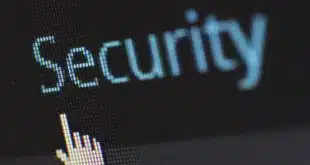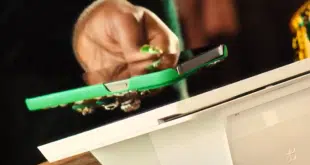Bankrupt Solidus Networks Inc., which does business under the Pay By Touch name, is ending all of its fingerprint-based biometrics operations effective late Wednesday, the company announced Wednesday afternoon. In a news release, the San Francisco-based firm said that at 11:59 p.m. Pacific time March 19, one second before midnight, “it will no longer process biometric transactions on behalf of its merchant customers and consumer membership base.” The company released few details about the cause of the abrupt shutdown. According to a person close to the matter, however, the decision to put an end to Pay By Touch's once ambitious biometric plans reflects skepticism among the company's creditors about the near-term prospects for the technology. These creditors will likely take over the company's remaining core assets, which now include a loyalty and data-management unit, this source says. The cash-strapped firm filed for reorganization Dec. 14 in U.S. Bankruptcy Court in Los Angeles and has been selling what it calls non-core assets while also trying to sell what it calls its core biometric authentication business. “As part of the company's restructuring, it was determined that the enterprise could no longer support the biometric authentication and payment system as it currently exists, based on lack of funding and current market conditions,” the release says. “Other non-biometric Solidus Networks business units continue on their current business paths.” A Pay By Touch spokesperson refused to elaborate on the release, saying she did not yet have confirmed information. Pay By Touch has about 600 biometrics customers. Jewel-Osco, the dominant Chicago area grocery/drug-store chain, is the biggest, with installations in about 180 stores. A spokesperson at Eden Prairie, Minn.-based Supervalu Inc., Jewel-Osco's parent company, could not be reached for comment. Not quite 100 Piggly Wiggly LLC grocery stores, most in South Carolina, also use Pay By Touch biometrics, as do about 100 retailers in Singapore. With Pay By Touch, a consumer registers a payment card and a mathematically derived template of her fingerprint on a special reader in the store. On future transactions she doesn't need to present the registered card. The first retailer to use Pay By Touch biometric authentication was the West Seattle Thriftway grocery store in Seattle, which installed it in 2002. Owner Paul Kapioski, who learned of the impending shutdown Tuesday, referred most questions to Pay By Touch. “It actually worked well for us,” he says, adding that his store still uses the system. He refuses to disclose volume. Pay By Touch recently sold its ATM Direct and BioPay Paycheck Secure units at auctions supervised by the bankruptcy court (Digital Transactions News, March 7). Still up for sale is the former CardSystems merchant-processing business, among other units.
Check Also
Restaurant POS Providers Roll Out Spring Enhancements
Providers of restaurant point-of-sale and management technology continue to enhance their offerings as restaurants remain …





